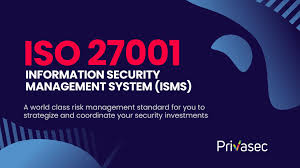Building an Effective Information Security Program: A Guide for Businesses
Protecting sensitive information is of paramount importance to businesses of all sizes in today’s digital age. Cyber threats are becoming increasingly sophisticated, so implementing robust information security measures is essential to protect data and maintain customer trust and reputation. So, let’s explore what an information security program entails and how businesses can deliver well established.
Understanding Information Security Systems:
An information security system refers to a set of policies, procedures, and technologies designed to protect an organization from unauthorized access, disclosure, alteration, or destruction of sensitive information. Also, it covers aspects of cybersecurity, such as data protection, risk management, incident response, and compliance with regulatory requirements and procedures.
Key features of an information security system:
● Risk Assessment: Conducting a proper risk assessment is the foundation of any effective information security strategy. It identifies potential threats, vulnerabilities, and risks to the organization’s information assets.
● Policies and Processes: Detailed policies and procedures are needed to define how information should be handled, accessed, and protected within the organization. Hence, this includes data classification, access, password of a user, and encryption policies. In between, if you are stuck anywhere, you can avail of GRC governance risk management and compliance services from the Cyber Verse professional team.
● Security Awareness Training: Educating employees on cybersecurity best practices is essential to reducing human error and reducing security incidents. Regular security training can help employees identify intercept attempts, identify security risks, and understand their role in protecting sensitive information or useful details.
● Access control: Implementing strong access controls ensures that only authorized individuals can access sensitive data. This includes the use of control mechanisms, the use of role-based controls, and the use of privileges to restrict access to sensitive systems and data.
- Incident response plans: Having a well-defined plan is essential to effectively manage security incidents and mitigate their impact. This policy should outline the steps to be taken in the event of a data breach, including incident detection, containment, mitigation, and recovery.
Conclusion :
In conclusion, establishing an effective information security program is essential for businesses to protect sensitive data, mitigate security risks, and maintain customer confidence. Moreover, policies, processes, and technologies that are enforced allow organizations to protect their information from cyber threats and evolving regulatory requirements. However, for all these steps, you must seek professional advice.



Comments
Post a Comment